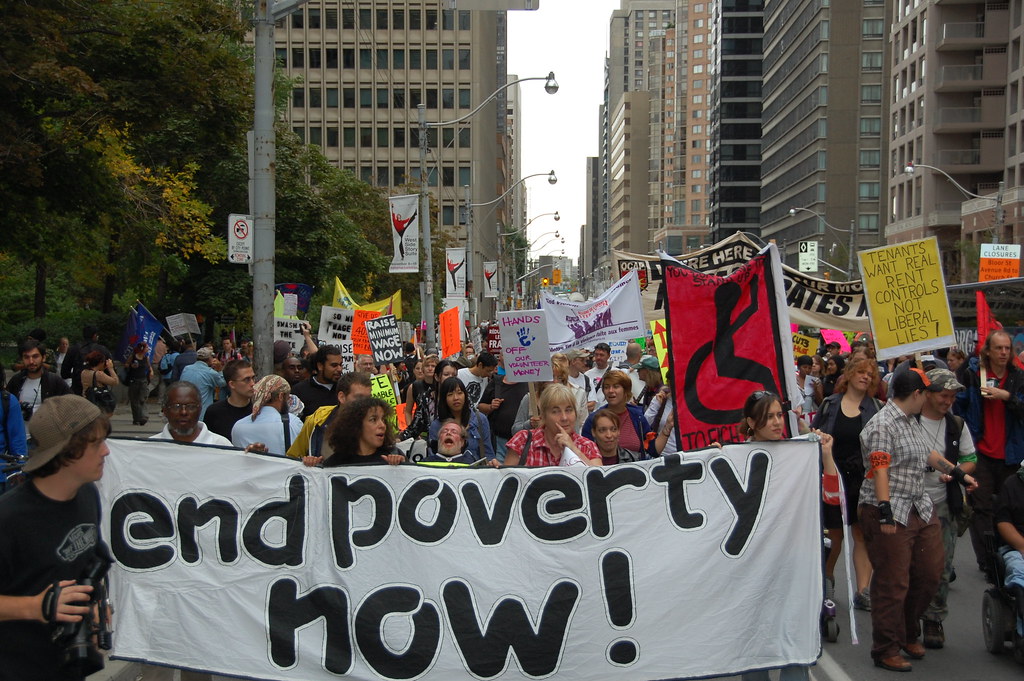Jamelle Bouie says it has nothing to do with what you own:
With microwaves, air conditioning and cell phones, it’s clear that poor people aren’t nearly as poor as we think they are*! I mean, it’s not as if poverty is concentrated in the nation’s two warmest regions — the South and the West — where air conditioning is a necessity, and it’s not as if cell phones are a cheaper alternative to landlines, and critical to navigating the world of low-wage service jobs. I guess you could call microwaves luxuries, but even that’s ignoring the fact that the [poor] are for (sic) more likely to consume frozen and prepared foods that need microwaving.
So in Samuelson’s column, what you have is another attempt to minimize the actual poverty of poor people by pointing to items that are actually necessary to surviving in [a] low-wage service economy.
Most people think of poverty like the dictionary does: poverty is a lack of things that are necessary – a lack of money, a lack of food and shelter, a lack of the “stuff” one absolutely needs to get along in whatever society they live. But as soon as someone points out the obvious fact** that American “poor” have the necessities and then some, Progressives, who love the poor***, get all up in arms.
“The poor have air conditioning? Well it’s hooooooooottttttt outside.” As if it was cooler 100 years ago when not even the rich had A/C.
But I especially like the argument that the poor have microwaves because they are more likely to eat the kinds of food that need to be microwaved. In other words, the poor, more than the rich, eat foods that someone else has already prepared for them. All we can reasonably expect of the poor is that they chew and swallow. Demand more than that from them and you obviously hate the poor.

Only in a Progressive Wonderland could a person who does not have to work, is constantly bedazzled with endless forms of entertainment and an unending array**** of ready-prepared food, and who lives in environmental comfort possibly be considered poor. Through most of human history it was only the king who could live that way. Now it’s the most woe begotten among us, apparently.
Poverty, to the progressive, is simply a question of numbers and formulas, of relative comparisons completely disassociated from real life, and has absolutely nothing to do with whether a person’s physical needs or even wants are being met. Its measurement is concerned mostly with how many credentialed experts must be hired to ‘solve’ a problem their programs do not measure and purposely do not address.
You think I’m kidding in that last assertion, but I’m not. Modern measurements of poverty specifically exclude the help that comes from the very programs Progressives push to ‘fight’ poverty, like Medicaid, subsidized housing, and food stamps. Progressives and poverty advocates insist that poverty be measured only by cash income.
But that begs the question: if someone’s food, shelter, and medicine is paid for by others, why in the world would they need income?
* That this is actually sarcasm might be missed because in the interest of space I have destroyed the context.
** It’s unarguably a fact. American poor have more food, more shelter, better health care and more life options than have existed anywhere else in the world at any time prior to the last half-century. We have the richest poor who have ever lived.
*** which is why they work so hard to keep the ones we have.
**** not to mention quantity










5